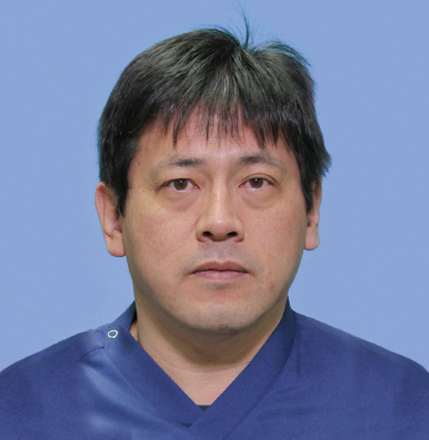感染症科は平成24年10月より診療体制を整備しました。現在は院内感染症症例のコンサルテーションを主な仕事とし、その他血液培養陽性患者のフォローアップ、感染管理業務を行っています。コモンな感染症から稀な感染症の診断・治療まで行い、総合内科との緊密な連携関係のもと、院内のあらゆる科と協働して感染症の困難症例や最適な抗菌薬治療のサポートを行い、感染症患者のマネジメントを一緒に行っています。
また当院は神戸市の中心的な急性期病院として一類感染症病床を有し、エボラウイルス感染症などの保健行政上話題になる感染症でも、神戸市における中心的な役割を担っています。また、高度医療機関として、通院または入院されている免疫不全の方々の感染症、海外から輸入された感染症、HIV感染症の診療にもあたっています。
当院は微生物検査室が充実しており、迅速に得られた情報を活かして感染症診療を行うことができ、また院内関連感染などの感染対策にも役立てています。
外来では渡航前や受診された方の必要に応じたワクチン接種や、その他渡航前後の健康相談、その他セクシャルヘルスに関する相談も行っています。
コモンな感染症から新興感染症まで
- 詳細な病歴と身体診察により、アセスメントを行い、必要に応じた検査と、治療を行っています。
- まれな感染症や診断がついていない症例にも対応しています。紹介状とともにこれまでの検査結果や治療内容を御持参の上受診されると助かります。
主な疾患・治療法
特定の検査はありませんが、血液・尿検査、培養検査(一般細菌、抗酸菌、真菌など)、髄液・胸腹水検査、画像検査(単純X線、CT、MRI、エコー)などの検査を、診断や治療の必要性に応じて適切に行っています。
菌血症、敗血症、髄膜炎、脳膿瘍、脳炎、硬膜外膿瘍、扁桃周囲膿瘍、悪性外耳道炎、眼内炎、肺炎、肺化膿症、膿胸、感染性心内膜炎、縦隔炎、胆嚢炎、胆管炎、肝膿瘍、感染性腸炎、虫垂炎、腎盂腎炎、前立腺炎、骨盤内炎症性疾患、化膿性椎体炎、化膿性関節炎、骨髄炎、筋膿瘍、蜂窩織炎、壊死性筋膜炎、リンパ節炎、褥瘡感染、術後創感染、カテーテル関連血流感染症、血栓性静脈炎、発熱性好中球減少症、結核、梅毒、破傷風、ノカルジア症、日本紅斑熱、インフルエンザ、麻疹、風疹、水痘、帯状疱疹、サイトメガロウイルス感染症、マラリア、デング熱、COVID-19、SFTS、リケッチア感染症など
渡航外来のページをご参照ください。
渡航外来ページセクシャルヘルス外来のページをご参照ください。
セクシャルヘルス外来9価ヒトパピローマウイルスワクチン、肺炎球菌ワクチン、インフルエンザワクチン、帯状疱疹ワクチン(不活化ワクチンと生ワクチンどちらも取り扱っています)、麻疹ワクチン、風疹ワクチン、水痘ワクチン、おたふく(ムンプス)ワクチン、日本脳炎ワクチン、破傷風ワクチンなどの接種が可能です。
接種可能なワクチンとその接種スケジュール血液・尿検査、培養検査(一般細菌、抗酸菌、真菌など)、髄液・胸腹水検査、画像検査(単純X線、CT、MRI、エコー)などの検査を、診断や治療の必要性に応じて適切に行っています。
診療実績
感染症コンサルテーション数
| 2022年 | 548件 |
| 2023年 | 618件 |
| 2024年 | 840件 |
臨床研究
臨床研究の実施に関するお知らせ
情報公開日:平成29年2月15日
感染症科に受診中の患者さんへ
現在 感染症科では、下記の臨床研究を実施しております。
この研究では、患者さんの日常診療で得られたデータ(情報)を利用させていただきます。
研究の計画や内容などについて詳しくお知りになりたい方、ご自身のデータがこの研究で利用されることについて異議のある方、その他ご質問がある方は、以下の「問い合わせ先」へご連絡ください。
| 研究課題名 | 説明文 (PDF) |
|---|---|
| 病院附属の保育園から病院内へのCOVID-19感染の影響に関する記述疫学研究 | |
| COVID-19専用プレハブ病棟における、環境と患者喀痰からのAspergillus属の分離との関連について | |
| 新型コロナウイルス感染症における変異株(VOC-202012/01)の臨床アウトカムへの影響を検討する研究 | |
| 神戸における新型コロナウイルス感染状況を把握するための横断研究 | |
| 神戸における新規のウイルス感染状況を把握するための横断研究と抗体検査の精度に関する研究 | |
| 神戸における新規のウイルス感染状況を把握するための横断研究 |
Capnocytophaga species感染症の臨床背景および臨床経過に関する他施設共同後方視的研究
| 研究の目的 | Capnocytophaga species が血液・髄液培養から検出された患者さんを対象に、通常の診療で得られたデータを収集・解析することにより、Capnocytophaga species感染症の臨床像を明らかにし、危険因子や治療方針を考える上で参考になる知見を得ることを目的としています。 |
|---|---|
| 対象となる患者さん | 2007年1月1日から2015年12月31日の間、当科を受診され、Capnocytophaga species が血液・髄液培養から検出された患者さん。 |
| 研究期間 | 当院の臨床研究倫理委員会承認日から 2019年3月末日 |
| 使用させていただく診療データ |
|
| 個人情報の取り扱いと倫理的事項 | 研究データは、共同で研究を実施している他の施設へ提供することもありますが、患者さんを直接特定できる情報(お名前やカルテ番号など)を削除し匿名化しますので、当院のスタッフ以外が当院の患者さんを特定することはできません。 この研究成果は学会や学術雑誌などで発表することがありますが、その場合でも上記のとおり匿名化していますので、患者さんのプライバシーは守られます。 なお、この研究は、国の定めた指針に従い、当院の臨床研究倫理委員会の審査・承認を得て実施しています。 |
| 研究事務局(本研究全般の窓口) | 自治医科大学付属さいたま医療センター 血液科 代表者名:鵜飼知嵩 住所:埼玉県さいたま市大宮区天沼町1-847 電話:048-647-2111 |
| 問い合わせ先(当院の連絡窓口) | 神戸市立医療センター中央市民病院 総合内科・感染症 研究責任医師:土井朝子 住所:神戸市中央区港島南町2丁目1-1 電話:078-302-4321 |


